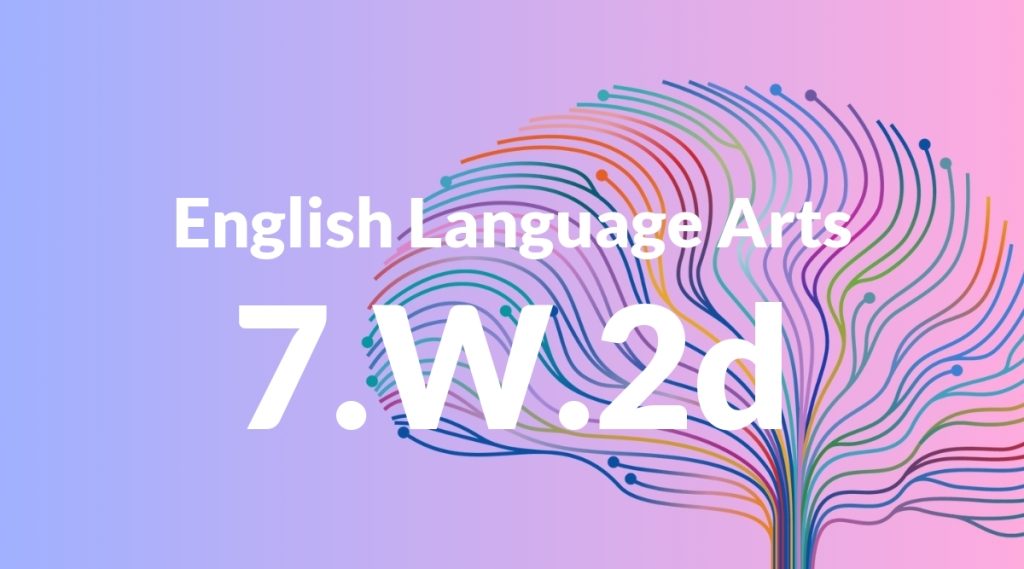Standard: 7.W.2d – Use precise language and domain-specific vocabulary to inform about or explain the topic.
Grade level: Grade 7
Subject: English Language Arts
Domain: Writing
Teacher Overview
This standard emphasizes the importance of using precise language and domain-specific vocabulary in writing. It is crucial for students to learn how to communicate their ideas clearly and effectively, especially when explaining or informing about a topic. Mastering this skill will enhance their overall writing abilities and prepare them for more advanced writing tasks in the future. Students should have a foundational understanding of grammar, sentence structure, and general vocabulary. They should also be familiar with the basic elements of writing informative or explanatory texts.
After mastering this standard, students will be able to write more detailed and complex texts with a high degree of clarity and precision. They will be well-prepared for high school writing tasks and beyond, where clear and effective communication is essential.
Common Misconception 1
A common misconception is that using more complex words automatically improves writing. This is incorrect because the primary goal is to communicate ideas clearly and effectively. Overly complex words can confuse readers and obscure the intended message.
Intervention 1
An effective intervention is to provide side-by-side examples of sentences using overly complex vocabulary versus precise and clear language. Discuss with students why the latter is more effective and practice rewriting sentences for clarity.
Common Misconception 2
Another misconception is that domain-specific vocabulary is only relevant to science or technical subjects. This is incorrect because every subject area has its own set of specialized terms that enhance clarity and precision in writing.
Intervention 2
Introduce students to domain-specific vocabulary in various subjects through reading and writing activities. Encourage them to create glossaries for different subjects and use these terms in their writing.
Prerequisite Knowledge
Students should have a basic understanding of sentence structure, grammar, and general vocabulary. They should also be familiar with the process of writing informative or explanatory texts.
Subsequent Knowledge
After mastering this standard, students will be able to write more complex and detailed texts, using a wide range of vocabulary and precise language. They will also be better prepared for high school writing tasks that require clarity and specificity.
Instructional Activities
- Vocabulary-building exercises focused on domain-specific terms.
- Writing assignments that require the use of precise language.
- Peer review sessions to identify and correct unclear language.
- Creating glossaries for different subjects.




